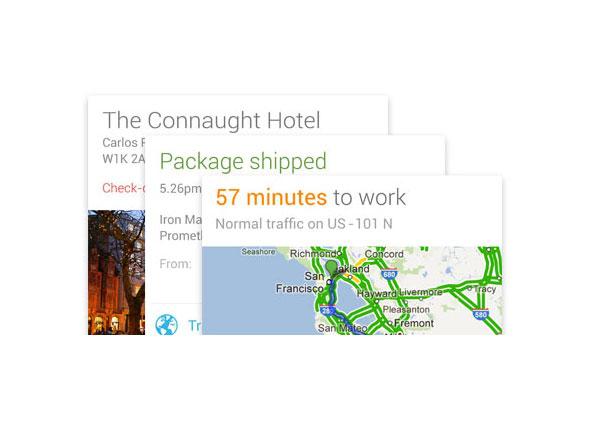Everyone, it seems, is building a smartwatch these days. Pebble, Sony, and Samsung have already released theirs. Apple has long been rumored to be working on one. Nokia has filed for patents. But the rumors about Google’s smartwatch are more intriguing than most, for two reasons. First, it might actually be close to completion. The Wall Street Journal reports today that the device is “in late-stage development” and the company is “in talks with Asian suppliers to begin mass production.” That makes it unlikely to be available in time for the holidays, but quite possibly ready to launch in the first half of next year. Apple, in contrast, is downplaying the notion that its watch will be ready anytime soon. Second, Google is one of two companies—Apple being the other—with the software to make a smartwatch actually useful. The fundamental problem with smartwatches is that their screens are tiny, so they have to be able to serve up information in intelligent, bite-size chunks, either in response to voice queries or of their own accord. For Apple, that likely means heavy reliance on Siri, which is pretty good for making calls, checking the weather, or checking your calendar, but limited when it comes to Web searches or anticipating your needs. For Google, it means Google Now, which is starting to get pretty good at all of those things. Indeed, the WSJ reports that Google Now is likely a big part of the company’s watch plans:
The new device, which will run on Android, will be integrated with Google Now, the company’s intelligent personal assistant that can answer questions, make recommendations and predict what information users need based on what they are doing, a person familiar with the situation said.Among other things, Google Now can be configured to give you a heads-up when it thinks you should leave for an appointment, based on your current location, the location of the appointment, and even real-time traffic conditions. Google is also working on giving it the capability to learn from your habits and adjust its notifications and estimates accordingly. The idea is that it can do a lot of this on its own, without you having to fumble with buttons or a touchscreen keypad. Meanwhile, the compact “cards” that the company has been developing for Google Glass could also come in handy on a watch’s small screen. And, as you’ve probably noticed, Google search itself has become more oriented to delivering simple, straightforward answers to your queries, which is far more useful than a list of Web results when your screen is only an inch or two wide. While other companies race to beat Apple to market with smartwatches, the assumption has been that Apple will set the bar if and when it comes out with an iWatch. But it had better watch out: Google could set a pretty high bar of its own, and it’s looking like it might just do it first. Related in Slate:
